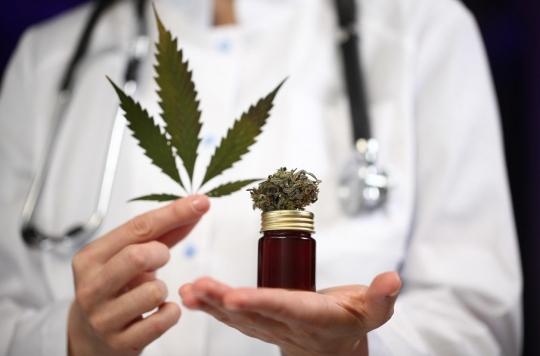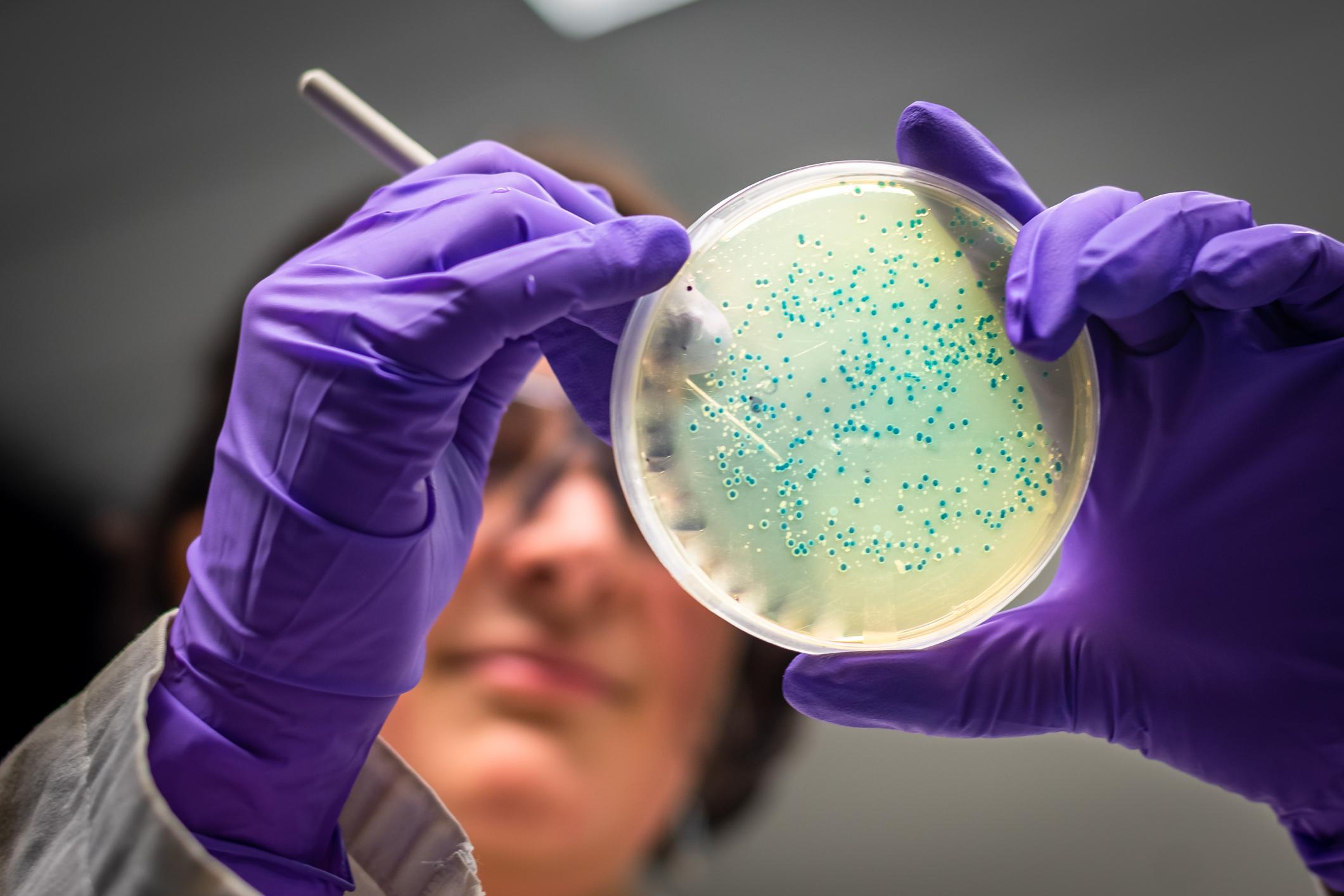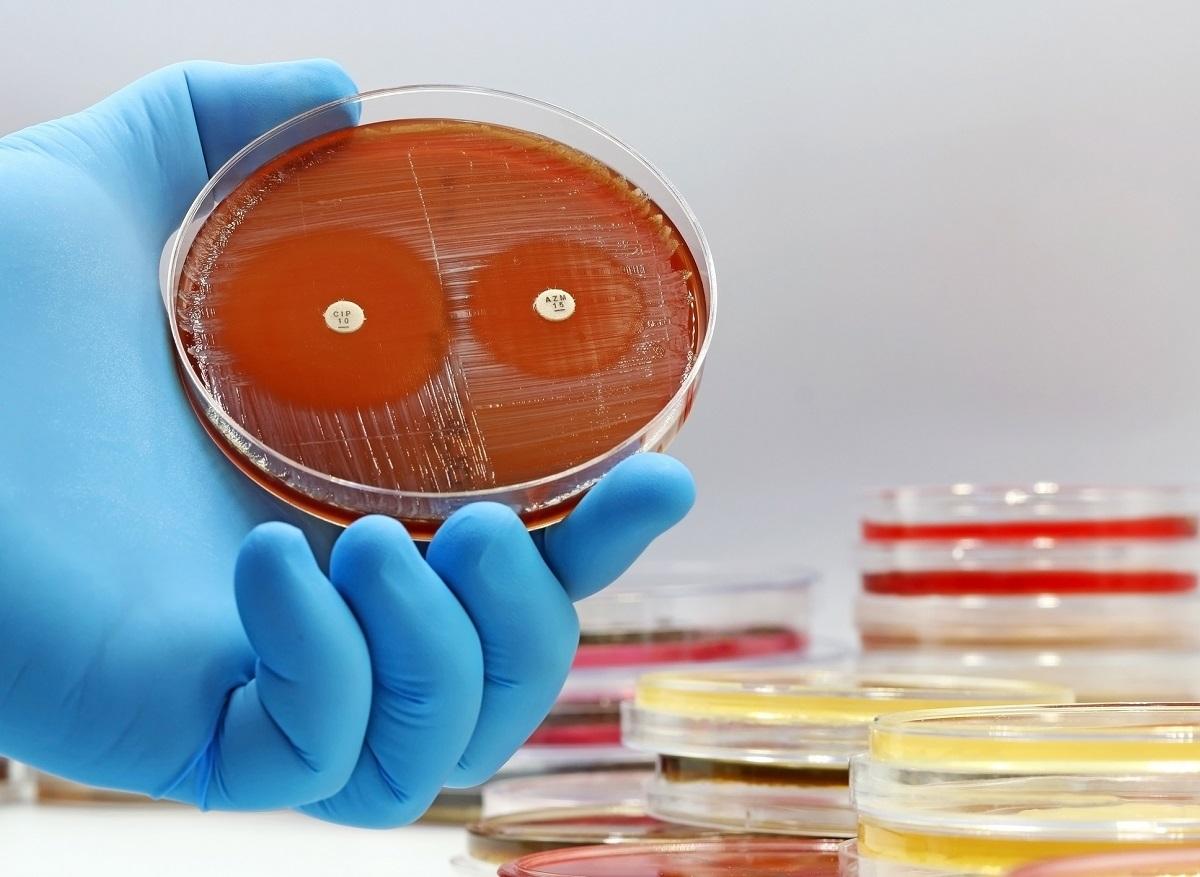In Canada, researchers have identified, using cannabis plants, an antibacterial compound with promising potential.

- Cannabis could be used in a new antibacterial compound
- This compound would destroy cells that are resistant to antibiotics
- In 2015, antibiotic resistance was responsible for 33,000 deaths in Europe
In recent years, antibiotic resistance has become a global health priority. In 2015, in the European Union, 33,000 people died because they did not receive an effective antibiotic treatment against bacteria that had developed resistance. Faced with this growing threat, researchers around the world are therefore working hard to develop new drugs. Today, Canadian researchers have identified, using cannabis plants, an antibacterial compound with promising potential. The results of their study appeared in the journal American Chemical Society Infectious Diseases.
Researchers at McMaster University (Canada) have found in the laboratory that the chemical compound, or cannabinoid, called cannabigerol (CBG) has antibacterial activity against methicillin-resistant Staphylococcus aureus (MRSA). Indeed, it prevents the bacterium from forming biofilms, communities of microorganisms that attach to each other and to surfaces. It destroys preformed biofilms as well as antibiotic-resistant cells, explains the university in a press release published on February 28.
The researchers then confirmed these findings by administering CBG to mice with MRSA infection. “In this study, we looked at 18 commercially available cannabinoids and they all showed antibiotic activity, some significantly more than others. The one we focused on was a non-psychoactive cannabinoid called CBG because it had the most promising activity. We synthesized this cannabinoid in massive quantities, which gave us enough compound to research further”explains Eric Brown, professor of biochemistry and biomedical sciences at McMaster.
“Trying to improve the compound”
“CBG has proven to be wonderful in attacking pathogenic bacteria. The results suggest a real therapeutic potential for cannabinoids as antibiotics”, he continues. However, the toxicity of CBG on host cells should not be forgotten, qualify the researchers. Thus, if the results of this study are interesting, they are not ready to lead to a final product.
“This opens a therapeutic window, but a narrow window, to develop this into a drug. The next steps are to try to improve the compound in that it is more specific to bacteria and less likely to be toxic.”explains Eric Brown.
It has been two years since the legalization of marijuana in Canada that the Brown laboratory has been studying the antibiotic potential of cannabis. “This research has become a priority for us. There has been some stigma attached to investing in this kind of research, but there is growing anecdotal evidence for the medicinal use of cannabis. The stigma seems to be fading”, Brown analyzes. He says the study depends on his collaborator Jakob Magolan, associate professor of biochemistry and biomedical sciences at McMaster, who specializes in drug development using synthetic organic chemistry.
France will soon experiment with therapeutic cannabis
“Jake’s labs and I are within walking distance of each other and our teams talk to each other all the time. This is just one of many exciting projects we are involved in that bring together scientists with very different but complementary skills.”concludes the researcher.
In France, a step will soon be taken in the legalization of cannabis, but not recreational. From October, therapeutic cannabis should begin to be prescribed for an experimental period of 2 years including 3,000 patients with serious pathologies.
“We selected a number of indications: neuropathic pain refractory to drug or non-drug therapies, certain forms of severe and drug-resistant epilepsy, in supportive care, in palliative situations, in oncology, in the case of pain related to multiple sclerosis or for other pathologies of the central nervous system”, explained Christelle Ratignier-Carbonneil, Deputy Director General of the National Medicines Safety Agency (ANSM) at the end of January.
.

















